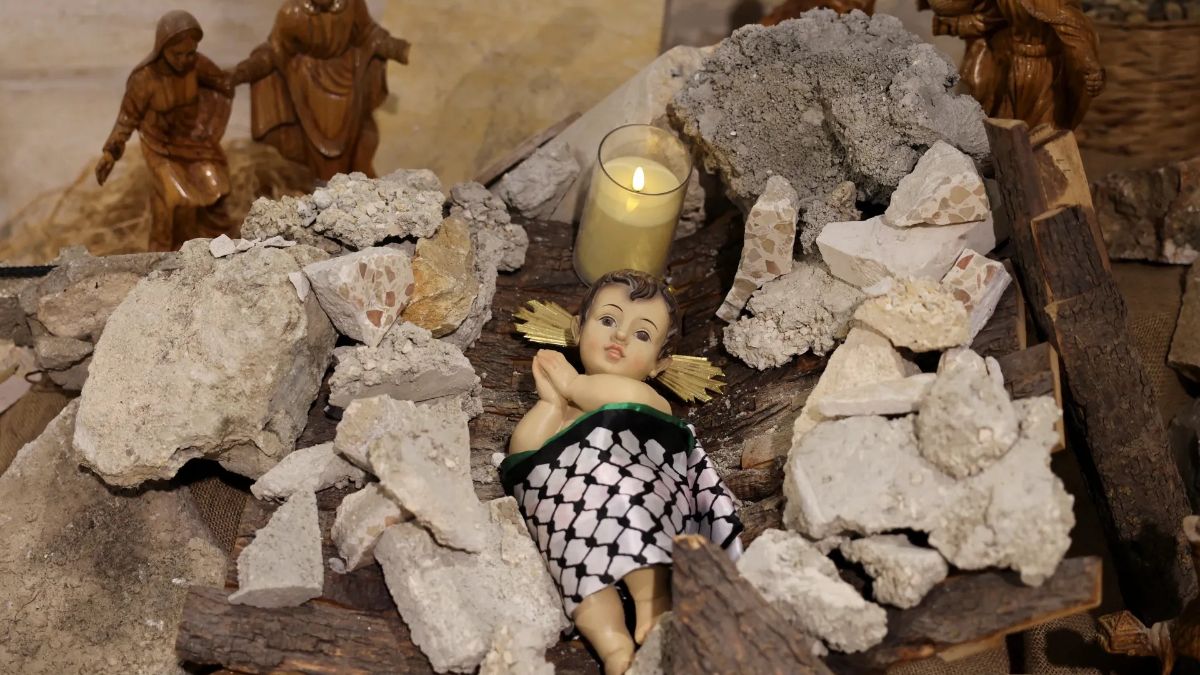Binding and Loosing
"Truly I tell you, whatever you bind on earth will be bound in heaven, and whatever you loose on earth will be loosed in heaven. Again, truly I tell you, if two of you agree on earth about anything you ask, it will be done for you by my Father in heaven. For where two or three are gathered in my name, I am there among them."
Matthew 18:18-20
September 5, 2014, Words By: Scott Dewey, Image By: "Bound" by Steven Key (CC BY-NC-ND 2.0)
Jesus’s ministry as peacemaker was characterized by – paradoxically – disruption and disorientation. It is clear he viewed this as essential to the movement toward shalom. At every turn in the gospel accounts, we find the status quo challenged by his words and actions. In this week’s gospel reading, here we have it again! Jesus is making a major shift in the location of authority.
The language of “binding and loosing” would have been familiar to his hearers as a responsibility and privilege reserved for respected religious authorities such as the Pharisees.* These teachers interpreted gray areas and practical implications of the Jewish law. The fourth commandment, for instance, forbids work on the Sabbath. But what about carrying something? How heavy? How far? What exactly can I carry, and what for? A piece of bread across the room? A sack of flour across town?
Religious authorities debated and decided this stuff – allowing and forbidding. Things allowed were “loosed” and things forbidden were “bound.” The implications ranged across all of life – personal, social, spiritual, legal. Some teachers were stricter and others were, well, looser.
In this and similar passages, Jesus doesn’t weigh in on whether he falls in the strict or loose camp. As a rabbi he makes a far more profound move. He grants to his immediate hearers the responsibility and authority to make such discernment. Not only that, he gives their “binding and loosing” the weight and sanction of heaven.
When we remember who Jesus’s followers were, this becomes downright alarming. Unschooled social castoffs making the rules for everybody? Here I want to say very personally how challenged I am even as I write this. I’m a religiously educated person groomed for authority, who happens to have spent many years among social misfits by way of programs, friendships, and even family. I think I probably have more appreciation for their messy gifts than most people do – having undergone so many of my own painful and beautiful rebirths with them. But… but… the homeless coffee house guys setting the rules for the place? Making moral judgments for others? Exercising spiritual discernment that impacts the whole community?
I need to sit with this and you do too. As we do, we will do well to explore the contexts (both in the immediate text and the larger story) in which Jesus makes this shift in authority. As well as our own contexts!
Here in this passage, the authority shift comes as a response to practical questions of conflict resolution (Matthew 18:15-17). “Binding and loosing” judgments are not made in an absolutist or theoretical vacuum. Commenting on this passage, J.H. Yoder observes that in our own day, “Christian debate about moral issues makes the mistake of concentrating on what the standards ought to be rather than on how they are to be discerned and implemented…. Conversation with reconciling intent is the most powerful way for a community to discover when the rules they have been applying are inadequate, so that they may be modified.”
Jesus was gathering a rag-tag community whom he trusted – even mandated – to do this ongoing work of discernment. Do we have this same trust?
Peace,
Scott Dewey
Street Psalms
*One excellent discussion of “binding and loosing” in Jesus’s day is here.



